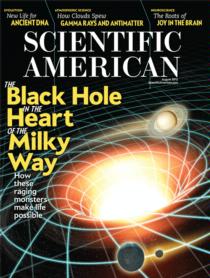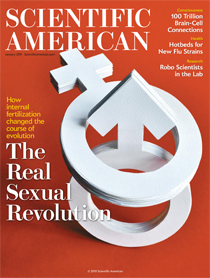Free Won’t
Volition as self-control exerts veto power over impulses

AT A RESTAURANT RECENTLY I faced many temptations: a heavy stout beer, a buttery escargot appetizer, a marbled steak, cheesecake. The neural networks in my brain that have evolved to produce the emotion of hunger for sweet and fatty foods, which in our ancestral environment were both rare and sustaining, were firing away to get me to make those selections. In competition were signals from other neural networks that have evolved to make me care about my future health, in particular how I view my body image for status among males and appeal to females and how sluggish I feel after a rich meal and the amount of exercise I will need to counter it. In the end, I ordered a light beer, salmon and a salad with vinaigrette dressing and split a mildly rich chocolate cake with my companion.
Was I free to make these choices? According to neuroscientist Sam Harris in his luminous new book Free Will (Free Press, 2012), I was not. “Free will is an illusion,” Harris writes. “Our wills are simply not of our own making.” Every step in the causal chain above is fully determined by forces and conditions not of my choosing, from my evolved taste preferences to my learned social status concerns—causal pathways laid down by my ancestors and parents, culture and society, peer groups and friends, mentors and teachers, and historical contingencies going all the way back to my birth and before. (continue reading…)


